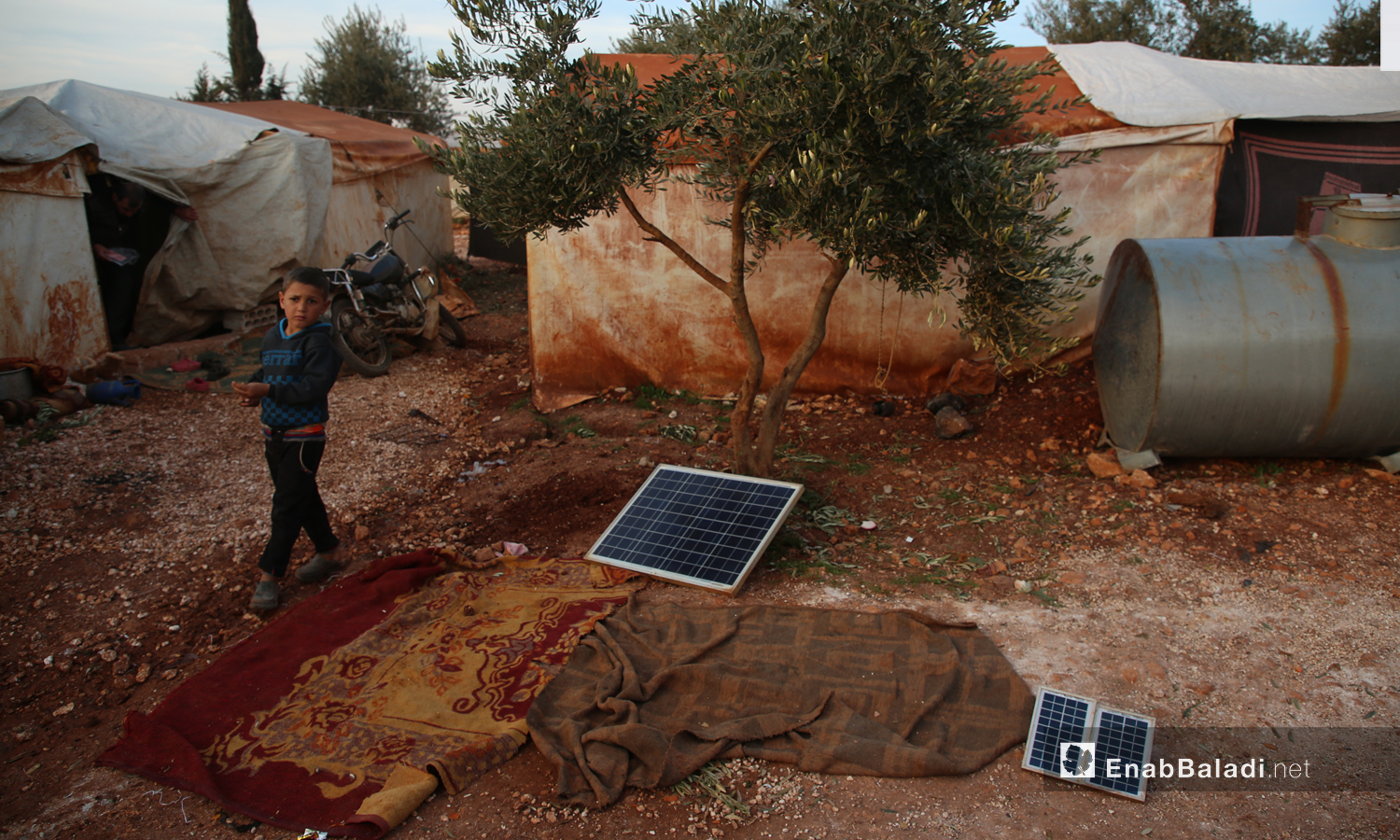



Idlib – Iyad Abdel Jawad
When 25-year-old Kenaz Ismail was doing laundry, suddenly the boost converter stopped working. Within seconds she “heard a very loud sound and felt a liquid substance spreading all over [her] body.”
Kenaz Ismail was knocked unconscious. After that, she woke up only to find herself a patient in a hospital room and her clothes changed by one of her family members. At first, she did not know what happened to her. But, when she came back home, she realized that the battery had exploded into flames.
Kenaz Ismail, who was displaced from the southern countryside of Idlib to its northern countryside, was unable to see or hear well for a week as a result of the battery explosion. She had to visit an ophthalmologist several times to get her normal vision back. However, her eye pain continues as of the time of writing this article.
Ismail is not the only one exposed to the hazards of battery explosions in northwestern Syria.
Ahmad al-Nawaf, who is 35 years old and lives in the camp of Hazano, north of Idlib, said that he never imagined that the battery he relies on to provide his tent with electricity would explode like a bomb, causing him severe injuries and the death of his little daughter, who was not yet two years old.
Imad Khalifa, an electrical engineer, told Enab Baladi that battery explosions could occur due to the shortening of the electrodes when dismantling or installing the battery terminals. The battery can also explode when the charging circuit is not installed because this leads to overcharging, which leads to a release of both oxygen and hydrogen gas (taking into consideration that battery components include both sulphuric acid and water).
Exceeding the maximum permissible limit for the charge current of a battery leads to the formation of a cloud of these explosive gases when any spark occurs from connecting the terminals of the boost converter to the batteries or any other source.
Imad Khalifa mentions specific methods to prevent liquid battery explosions, such as building a battery cutoff circuit to prevent the battery voltage from rising above the permissible limits, positioning the battery in a well-ventilated place, and not exposing the battery to extreme heat.
When the battery voltage drops due to excessive discharge, we should immediately resort to the battery cutoff circuit to disconnect the energy stored in the battery from the load. We should also remove the battery caps to provide good ventilation, Khalifa said.
With the onset of summer, the output power of the solar panels increases with increasing exposure to strong sunlight, which increases the charging of the battery itself. It is necessary to have a charge controller to disconnect the power source, such as the solar panels, when the batteries are fully charged.
After years of power cuts in war-battered northern Syria, electricity is gradually returning to Idlib and its countryside. The opposition’s General Electricity Corporation agreed with the Green Energy company to supply some areas in northwestern Syrian with electricity from Turkey. However, the displacement camps, which are spread in the northern countryside of Idlib, have not yet had access to electricity service, the assistant director of camp affairs in northwestern Syria, Muhammad Aboud, told Enab Baladi.
Most displaced families in these camps depend on alternative sources of power, such as generators and solar panels.
In the foreseeable future, it is impossible to supply the camps of northwestern Syria with electricity due to a lack of such service projects, according to Aboud. Additionally, the camps are not designed to be equipped with electric networks. The General Electricity Corporation gives priority to the cities and villages.
Displaced people rely on primitive power generators, such as batteries, to illuminate their tents and for their personal use, due to the prolonged power outages. They count on particular ampere electric service (the name locals use to refer to generators’ electricity) provided by the NGOs and responsible bodies.
if you think the article contain wrong information or you have additional details Send Correction